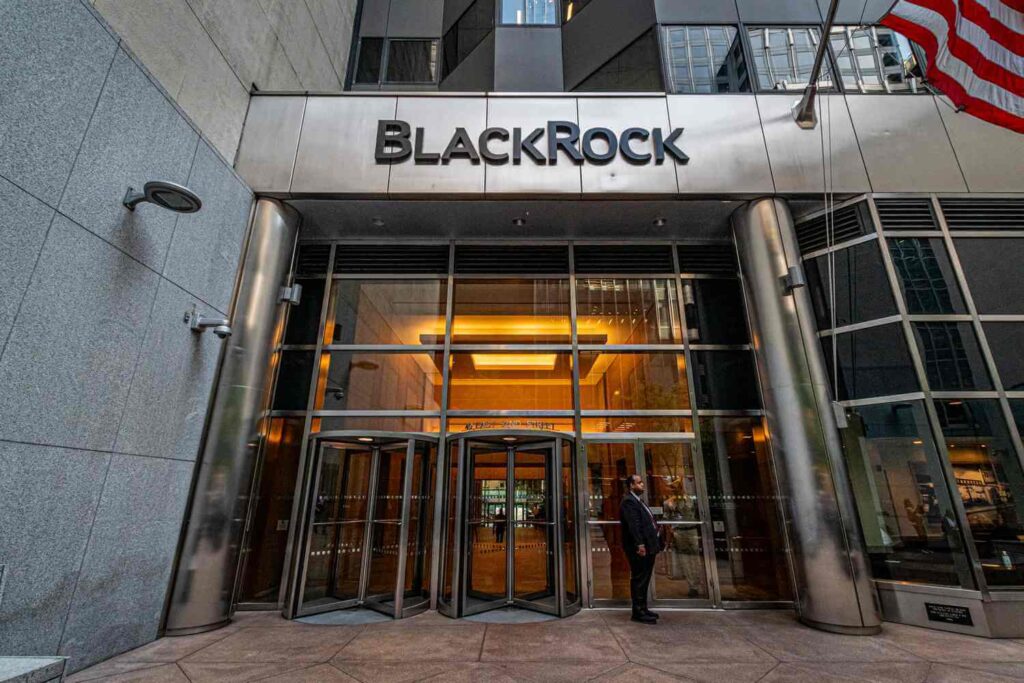In the ever-evolving landscape of cryptocurrency investment, a monumental shift is occurring as institutional giants move into the market, seeking to harness the vast potential of digital assets. This growing interest is exemplified by BlackRock’s Bitcoin ETF, which has achieved extraordinary milestones in record time. As the financial world watches closely, this development not only highlights the increasing appetite for regulated Bitcoin products but also sparks a broader discussion about the implications of institutional involvement in a domain once dominated by individual investors.
BlackRock’s Bitcoin ETF: A Record-Breaking Journey
Institutional Investors Embrace Bitcoin Through a Reliable Platform
BlackRock’s Bitcoin ETF recently made headlines as it soared past the $70 billion mark in assets, achieving this feat in just 341 trading days. ETF analyst Eric Balchunas noted this rapid growth as unprecedented, far outpacing the SPDR Gold Shares (GLD) which took over four years to reach the same level. Currently managing about $71.9 billion and holding 661,457 BTC, the ETF outstrips heavyweights like Binance and Michael Saylor’s strategy in terms of Bitcoin holdings.
Analyzing Investment Flows: Gains and Pullbacks
Per insights from Farside Analytics, the BlackRock Bitcoin ETF has led the charge among 11 spot Bitcoin ETFs since its early 2024 inception, amassing close to $49 billion in net inflows. However, the journey hasn’t been without volatility. A notable incident occurred on May 30, when the ETF experienced its largest single-day outflow of $431 million, underscoring the sensitive dynamics between Bitcoin price movements and fund inflows.
Projecting BlackRock’s Influence on Bitcoin Holdings
With the current growth trajectory, BlackRock could soon possess a Bitcoin fortune rivaling that of Satoshi Nakamoto, the enigmatic creator of Bitcoin, who reportedly controls around 1.1 million BTC. Should this milestone be achieved, it signifies a substantial institutional footprint in a market traditionally associated with decentralized individual ownership.
Linking ETF and Bitcoin Price Trends
At present, shares of the ETF stand at $61.77, marking a 5.30% increase over the last week, reflecting Bitcoin’s upward climb toward $110,000. The fund’s performance closely mirrors Bitcoin’s price trajectory, demonstrating the ETF’s sensitivity to cryptocurrency market fluctuations.
Navigating the Implications of Growth
In a recent dialogue, Blockstream CEO Adam Back emphasized the necessity for user-friendly Bitcoin acquisition methods, citing the average investor’s unfamiliarity with technical wallet management. Yet, he warned against excessive ETF concentration, highlighting potential risks associated with deviating from Bitcoin’s decentralized ethos. This discourse underscores the tension between facilitating widespread access and preserving the foundational principles of cryptocurrency.
BlackRock’s remarkable ETF development marks a pivotal moment in crypto history, catering to institutional demand and democratizing Bitcoin access. However, it prompts a critical examination of control dynamics and potential shifts in market power.
Is BlackRock’s Bitcoin ETF a secure investment option?
BlackRock’s Bitcoin ETF provides a structured approach for investors seeking exposure to Bitcoin without the complexities of direct ownership. However, like any investment, it carries inherent market risks, and potential investors should thoroughly evaluate their investment objectives, risk tolerance, and consult financial advisors prior to investing.
What makes BlackRock’s Bitcoin ETF stand out in the market?
The ETF’s unprecedented growth and speed in amassing assets highlight its appeal, driven by institutional trust and favorable market conditions. Its structure offers a regulated, convenient path for acquiring Bitcoin exposure, which attracts a wide range of investors looking for stability amidst the volatile crypto landscape.
How does BlackRock’s ETF influence Bitcoin’s decentralization?
By concentrating significant Bitcoin holdings within an institutional framework, BlackRock’s ETF may influence market dynamics and potentially centralize control, conflicting with Bitcoin’s original decentralized philosophy. Stakeholders remain divided on balancing easy access with decentralization principles.
Can BlackRock’s ETF sustain its growth momentum?
The ETF’s growth is subject to Bitcoin market trends, regulatory developments, and investor sentiment. While its rapid asset accumulation is impressive, long-term sustainability will depend on these volatile factors. Continuous market evaluation and strategic adaptation are essential for maintaining its growth trajectory.

